Green Card Lawyer In Brooklyn
In today’s interconnected world, the pursuit of better opportunities and a brighter future often involves crossing borders. However, navigating the complex and ever-evolving immigration laws and regulations can be daunting, especially when it comes to obtaining a coveted green card. Fortunately, immigration lawyers play a crucial role in guiding individuals through this intricate process, deftly addressing legal complexities and ensuring a smooth path toward green card acquisition. At Taylor & Associates P.C., our immigration lawyers play an indispensable role when it comes to navigating the procedural intricacies and legal challenges involved in securing a green card.
The physical green card itself is a wallet-sized identity card with your picture, but its meaning is much more significant than that. The process to acquire one can be convoluted or relatively smooth, depending on a variety of factors. Only an experienced immigration lawyer, such as ours at Taylor & Associates P.C., can counsel you through the process of obtaining your green card.
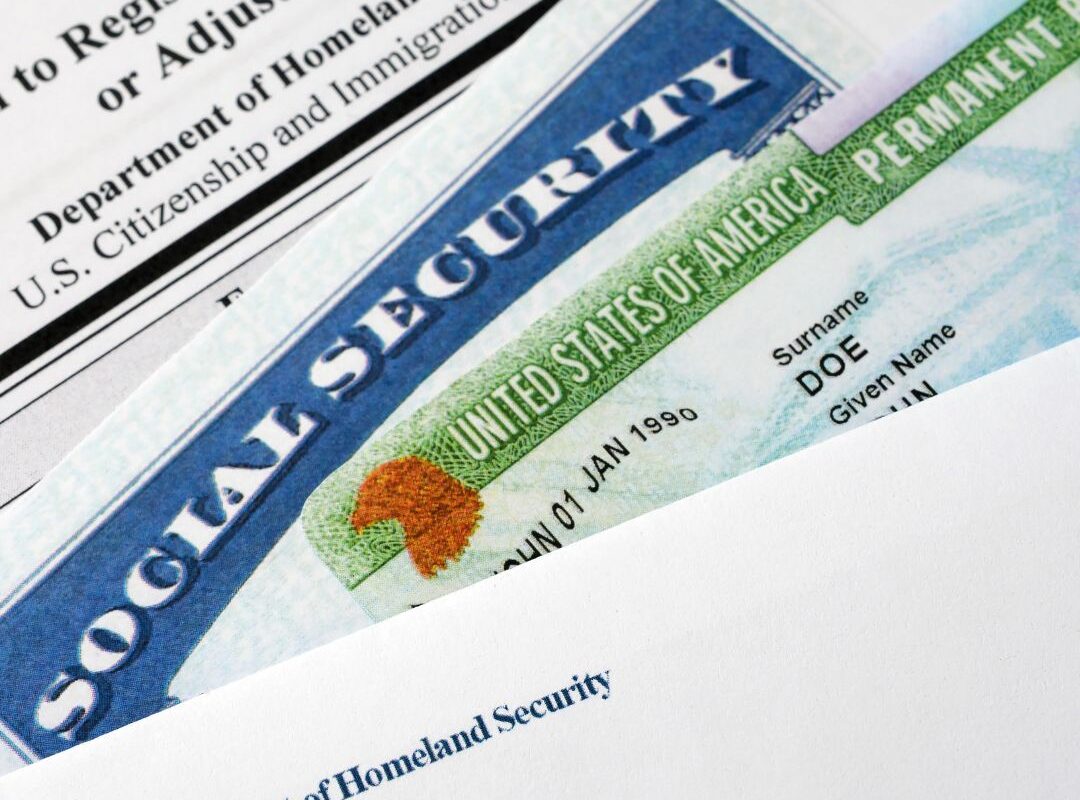
What Does a Green Card Entitle You To?
A green card gives an individual who is originally from a foreign country the permanent legal right to live and work in the United States of America. Additionally, you can apply for many jobs in both the public and private sectors. Holding a green card also allows you to receive some educational and health benefits.
A green card does not entitle you to vote, and this is important to understand because the DMV (and other organizations) may give you the option to register to vote when you get your driver’s license. The motor vehicle officials aren’t involved in immigration and may try to persuade you to register to vote without understanding that you do not have that legal right. Very severe consequences (unable to become a citizen and/or removal/deportation) can result from simply registering to vote. Always check with an immigration attorney before trusting the word of an official from another agency, as only an immigration attorney is able to answer those questions.
Green Card Application Requirements
To be eligible for a green card, you must meet the qualifications based on the type of green card you are applying for. The types of green cards include employment-based green cards, family green cards, or marriage or immediate relative green cards.
Because there are many different pathways to acquiring a green card, there are different requirements for each type of visa. All will require official documents and forms to be filed, but which ones will depend on who is immigrating and why.
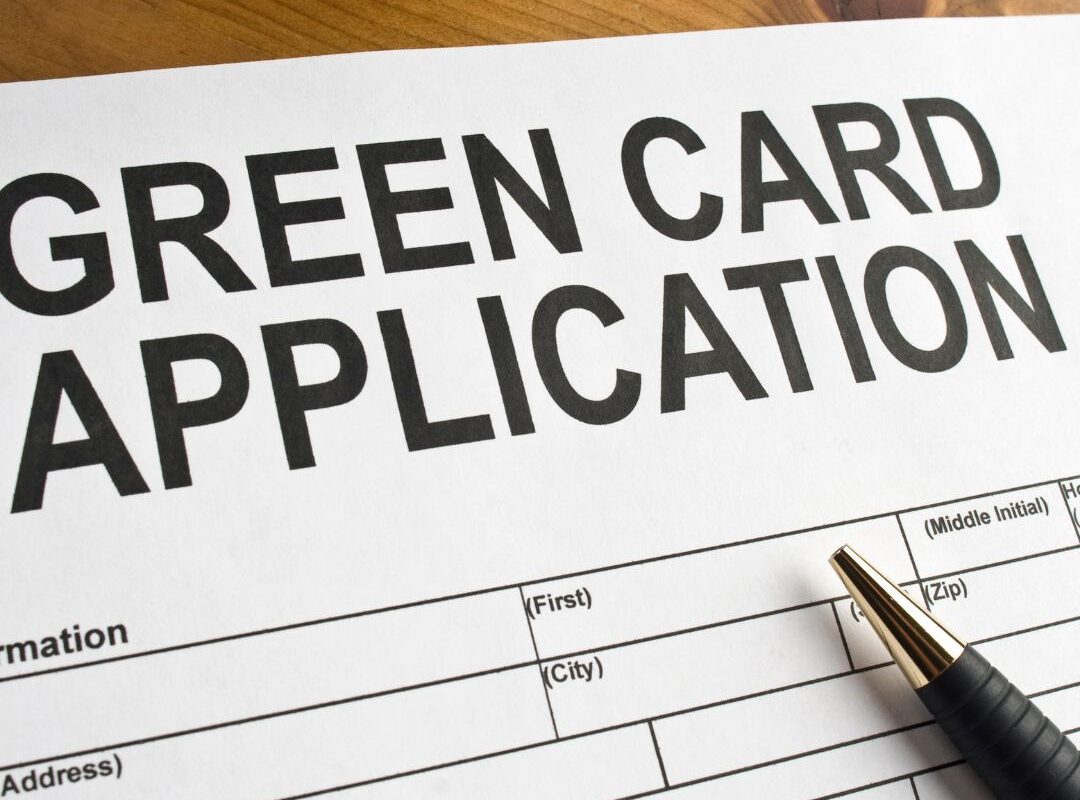
The Green Card Application Process
Because there are different types of visas and unique situations, the process can vary from person to person, and the types of forms required may be different. To give you a general overview of the process for most people, the first step is to contact an attorney, who will help you decide what your current status is, regardless of whether you’re in the U.S. already or in another country.
Next, you need to start gathering official documents or requesting them from official entities, such as academic transcripts from a university, court records, and police reports from every place you have ever lived/resided. You will need to get these documents authenticated, and if in a language other than English, translated. Your attorney will help you fill out the appropriate forms. While you are waiting for your application to be processed, it is important to follow all laws and to report any changes in your status or address. otherwise, your application may be denied.
The immigration process can be vastly different for each person, given many factors. Politics also plays a major role in immigration laws, so there is often change and reform that immigration attorneys must stay abreast of in order to help their clients.
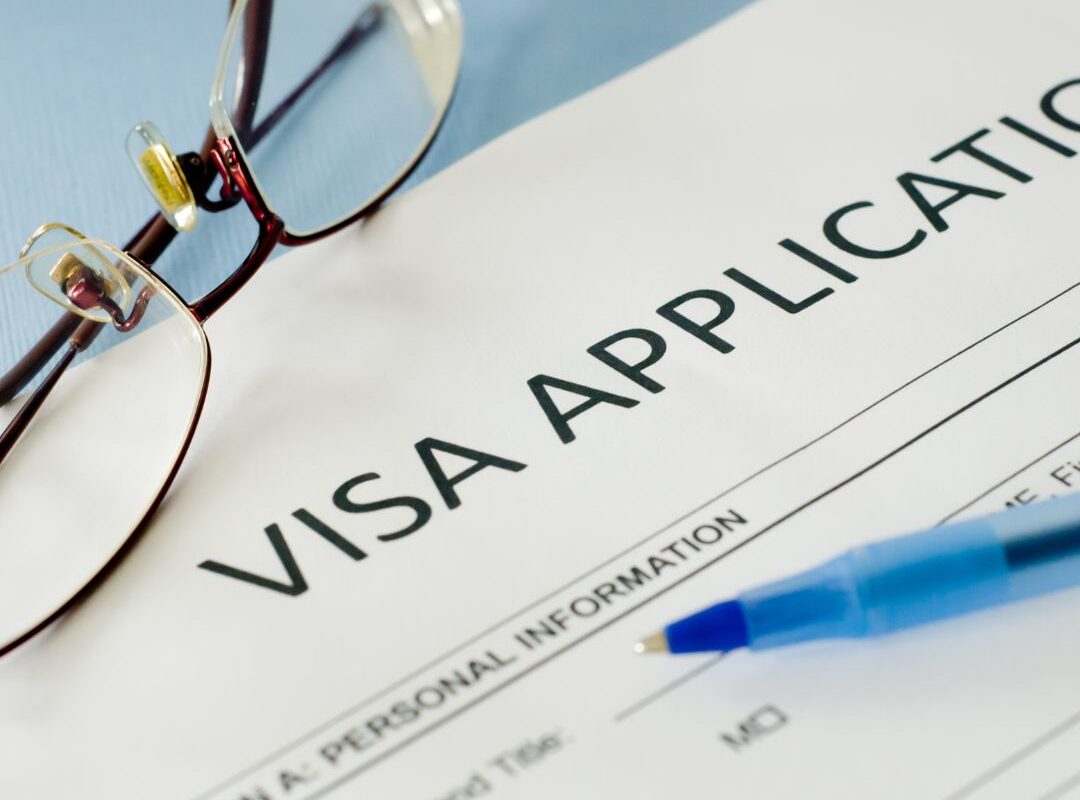
Employment-Based Green Card
If you are applying for an employment-based green card, you will need a valid job offer from an employer in the United States. You must also meet the requirements of the particular employment category you are applying for.
EB-3 immigrant visas allow employees in certain fields to obtain a green card or permanent resident status. To qualify as a professional, you must have a bachelor’s degree or foreign degree equivalent in a profession that requires at least a bachelor’s to enter it. A skilled worker is someone who has at least two years of work or training experience. Additionally, you need an employer who wants to hire you and will petition to sponsor you.
Registered Nurse and Physical Therapist Green Card (Schedule A)
If you are a registered nurse or physical therapist, you may be eligible for a green card under Schedule A. The U.S. is facing a critical shortage of nurses and physical therapists. It is willing to offer not only temporary work visas to foreign nationals who would like to practice their profession here but also permanent residency on a faster track than other employment-based green cards. To qualify for a green card, a U.S. employer must have offered you a full-time, permanent registered nurse or physical therapist position, but you are not required to go through the U.S. Labor Certification Process. Your employer would complete the ETA Form 9089 to submit Form I-140 directly to USCIS, bypassing the Labor Certification (LC) with the U.S. Department of Labor (DOL). The DOL has asserted that there is a shortage of U.S. citizens who are qualified, available, and willing to be registered nurses and physical therapists.
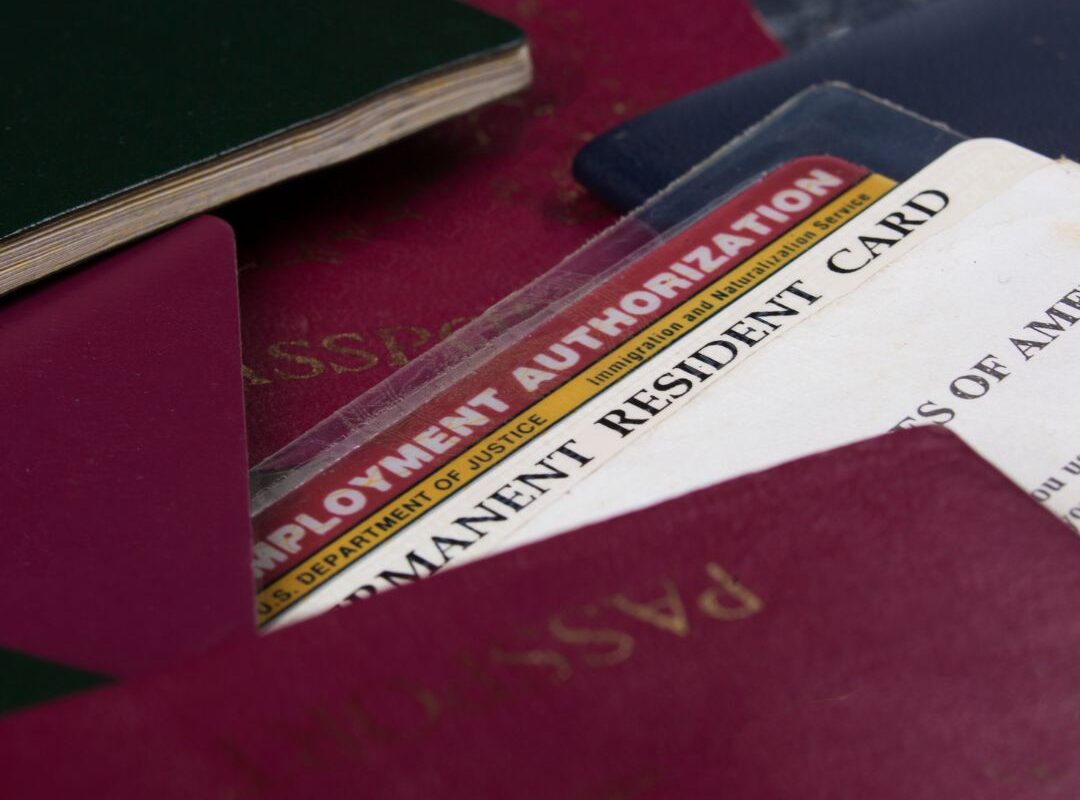

Marriage or Immediate Relatives
If you are married to a U.S. citizen or have an immediate relative in the United States, you may be eligible for a family-based green card. You must also meet the other requirements for this type of green card. This is the most common way of acquiring a green card. The documents to apply for a green card by marriage vary, but generally include:
- Marriage certificate
- Financial documents
- Birth certificate
- Proof of sponsor’s U.S. citizenship or permanent residence
- Proof of lawful U.S. entry and status, if applicable
If you were previously in the military, in a prior marriage that has been terminated, have any immigration violations in your past, or are present in the U.S. on an expired visa, then your process would be best assisted by an immigration attorney.
Family Green Card Applications
You can petition for a family member to immigrate to the United States. Some of the relatives you may petition for, among others, depending on whether you are a U.S. Citizen or a U.S. Green Card holder, are your spouse, your child (under age 21), or your unmarried son or daughter of any age. The first step is to file a Form I-130, Petition for Alien Relative, and provide proof of your citizenship or permanent resident status. Additionally, you must provide proof of your relationship to the person for whom you are petitioning. Some of the documentation required:
- Birth certificate
- Marriage certificate
- Divorce decree
- Documentation of any name changes, if applicable
Again your immigration attorney will guide you as to the specific documents needed for your petition. Your petition will fall into one of the following categories based on their relationship to you:
- Immediate Relative
- First preference (F1)
- Second Preference (F2A)
- Second Preference (F2B)
- Third Preference (F3)
- Fourth Preference (F4)
Unmarried sons and daughters (age 21 and older) of U.S. Citizens are given first preference. Brothers and sisters of adult U.S. citizens are in the 4th category. If you want to petition for a family member, the time to act is now.

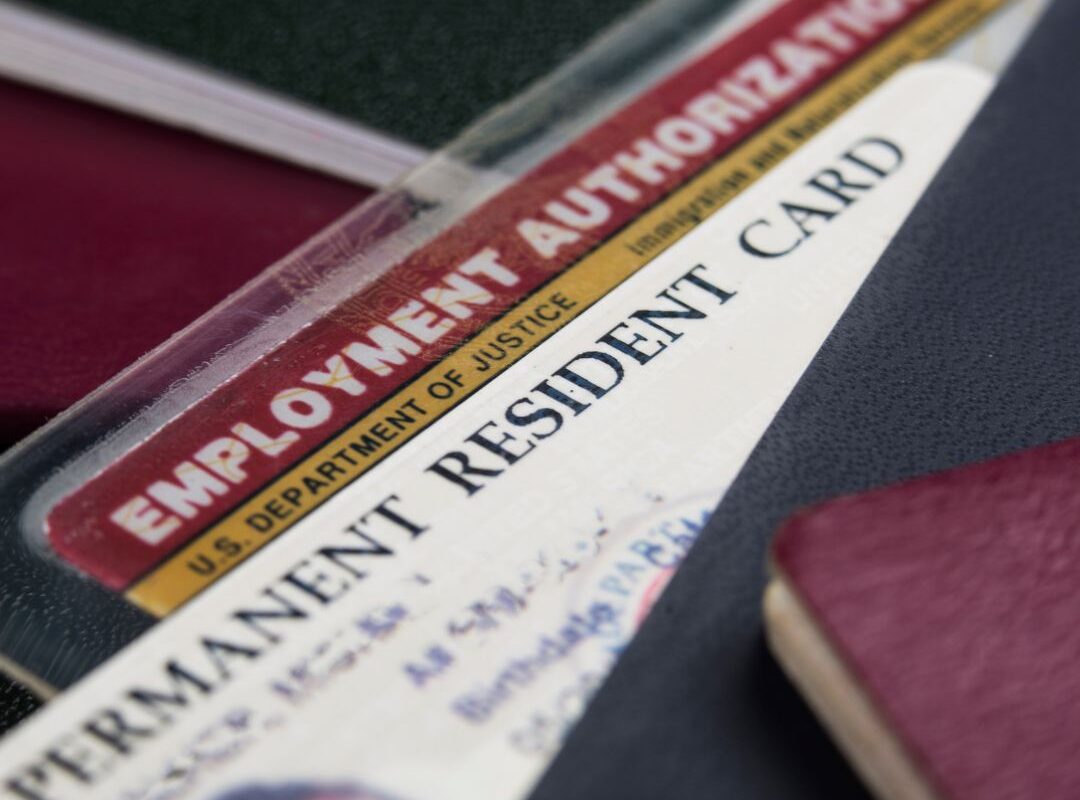
Employment-Based Visa Application
This is the second most common path to a green card. “EB” stands for employer-based, and the various levels of skill, experience, and education required for the job are represented by the numbered category of preference. There are only so many visas that are given out, and a common problem is that applicants are placed on a waitlist depending on their category of preference and their country of birth.
The following is some of the documentation you may need to provide based on your profession and the type of employment on which the green card is based:
- A license to practice your profession or certification
- Official academic transcripts from all colleges and universities
- Work experience letters
- Proof that you have been offered a salary (or other remuneration for services) that demonstrates your exceptional ability in some role (science, arts and culture, or business)
- Letters from colleagues or peers documenting your exceptionality
Your immigration attorney will guide you as to the necessary documentation for the specific type of employment-sponsored Green Card.
Other Types of Visas
With many types of visas available, it’s best to talk to your attorney about your goals. Whether you’re immigrating as a student, a business owner, or are petitioning for a family member, you risk having your application rejected if you fill out your forms incorrectly, or if you fill out the incorrect form. Hiring an immigration attorney in New York will make the process go much more smoothly, and you can be sure that you are providing what U.S. Citizenship and Immigration Services requires.
Fourth Preference EB-4
This is a type of employment-based immigration visa for:
- Ministers
- Non-minister special immigrant religious workers
- Broadcasters
- Armed Forces Members
- International Employees of the U.S. Government Abroad
- Employees of the G-4 International Organization or NATO-6 Employees
In order to apply for this visa, your U.S.-based employer must file an I-360, Petition for Amerasian, Widow(er), or Special Immigrant. Some EB-4 visas allow for derivative beneficiaries, which means that other family members could potentially qualify to receive a green card as well. For example, if you’re planning on moving to New York with an EB-4 visa, then your spouse or children under age 21, or even unmarried children over age 21, can potentially be admitted to the United States.
Student Visa
There are 4 types of student visas:
- F-1 visa: This is for students from elementary school all the way through a graduate degree, and includes language classes
- M-1 visa: This is for students in a vocational or non-academic institution, such as a technical institute
- J-1 visa: For students who are camp counselors, interns, short-term scholars, trainees, teachers, or others who are part of an exchange program. Once these expire, the holder has 30 days to leave the U.S.
- Q-1 visa: If you’re a participant in an international cultural exchange program. There is no cap on the number of visas given in this category.
Visitor Visa
Also called a “tourist visa” or B2, this type of visa is for anyone who would like to enjoy their time as a tourist in this great country, or would like to seek medical treatment. You will need to fill out a Form DS-160, Online Nonimmigrant Visa Application. While the U.S. wants tourists to come and see what makes this nation so great, you must come here with the intention of only participating in allowed activities and returning to your country of origin before the expiration of stay authorized by Customs Border Patrol (CBP) when you entered the U.S.
- You may attend weddings of close relatives, graduations, baby showers, and other major life events
- You may visit with family members, friends, former classmates, and elderly relatives
- You may assist a daughter, daughter-in-law, or close relative with pregnancy
FAQs For Green Card Applicants
Immigration law is very complex. Our attorneys are here to help answer any questions you may have about the green card process. We can answer questions about green card eligibility, application requirements, and the application process. Here are a few answers to some frequently asked questions about green cards.
Can I Self-Petition for a Green Card?
Most employment-based green card holders cannot self-sponsor, but there are some exceptions. If you have an extraordinary ability in the sciences, arts, or education, or are a notable business leader or athlete, then you can self-petition for an employment-based green card. Another exception is called the National Interest Waiver (NIW). If your job requires an advanced degree and you work in certain fields such as medicine, education, law, architecture, or engineering, then you could potentially qualify for a National Interest Waiver. You need to speak to an attorney if you qualify for either of these.
Can I Lose My Green Card Status?
Yes. If you commit certain crimes you can lose your status. They can be misdemeanors or felonies. You can also be deported if you possess illegal substances, commit fraud, fail to complete a change of address form in a timely manner or fail to establish permanent residence within the United States. That’s why you need to call Taylor & Associates P.C. if you have any questions about the legality of your status.
If you have additional questions or concerns about your specific circumstances, then contact us at Taylor & Associates P.C. today to speak to an attorney.
Get Green Card Help From Our Immigration Attorneys In Brooklyn
To learn more about our green card services, schedule a consultation today. Our experienced attorneys at Taylor & Associates P.C. can help you understand the process and make sure your application is filed correctly and on time.

Call Us Now (888) 912-5152
